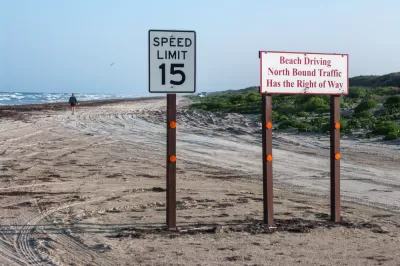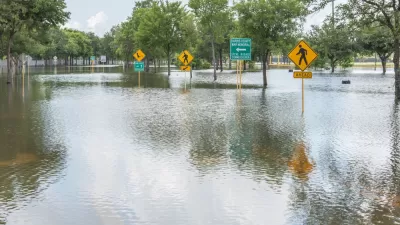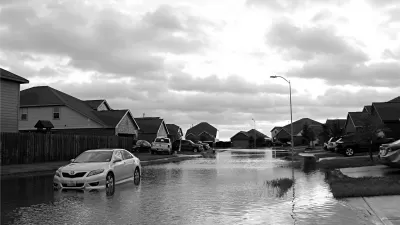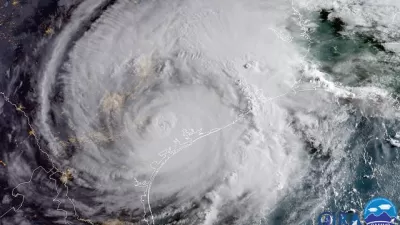In a new book, lawyer Jim Blackburn suggests that engaging private landowners is the only way to manage the coast of his home state.

Hurricane Harvey brought up a number of questions for residents of the Gulf Coast of Texas. Was the damage so severe because of zoning, or sprawl, or climate change? Is it better to rebuild or buy out? Is a storm just as severe inevitable?
And more than anything, how do we keep this from happening again?
Environmental lawyer Jim Blackburn presents one strategy in his new book, A Texan Plan for the Texas Coast, calling “not for greater regulation but for new markets.”
There are several unique attributes of the Gulf Coast of Texas that make a private-sector approach to management the strongest, according to the author, who leads a research group at Rice University called the Severe Storm Prevention, Education, and Evacuation from Disasters Center (SSPEED).
“The Texas Gulf coast is one of the least regulated of U.S. coastal areas. Blackburn attests that without federal environmental law (Clean Air Act and Clean Water Act) and the Army Corps of Engineers, for which he taught in the 1980s, there would be no environmental law on the Texas coast. Since 1972, when Texas rejected the federal regulations and funding of the Coastal Zone Management Act (CZMA), the state has more or less managed its own coast.”
A related attribute is that 80 percent of the land along the Texas Gulf Coast is privately owned. Private property rights in Texas are sacred, so that’s unlikely to change.
“In a market economics based approach, private landholders would sell carbon sequestration credits to corporations in the form of (unregulated) commodity contracts. The consumer would then, ostensibly, purchase such products branded as carbon-neutral.”
Not everyone believes that a voluntary system would be effective, but “Blackburn is optimistic. In his view, eco-services of ranching, birding, and fishing would continue to be maintained through private litigation, entrepreneurship, competition, and personal commitment."
FULL STORY: BOOK ON THE TEXAS GULF COAST OFFERS ‘TEXAN PLAN’

Maui's Vacation Rental Debate Turns Ugly
Verbal attacks, misinformation campaigns and fistfights plague a high-stakes debate to convert thousands of vacation rentals into long-term housing.

Planetizen Federal Action Tracker
A weekly monitor of how Trump’s orders and actions are impacting planners and planning in America.

San Francisco Suspends Traffic Calming Amidst Record Deaths
Citing “a challenging fiscal landscape,” the city will cease the program on the heels of 42 traffic deaths, including 24 pedestrians.

Half of Post-Fire Altadena Home Sales Were to Corporations
Large investors are quietly buying up dozens of properties in Altadena, California, where a devastating wildfire destroyed more than 6,000 homes in January.

Opinion: What San Francisco’s Proposed ‘Family Zoning’ Could Really Mean
Mayor Lurie is using ‘family zoning’ to encourage denser development and upzoning — but could the concept actually foster community and more human-scale public spaces?

Jacksonville Launches First Autonomous Transit Shuttle in US
A fleet of 14 fully autonomous vehicles will serve a 3.5-mile downtown Jacksonville route with 12 stops.
Urban Design for Planners 1: Software Tools
This six-course series explores essential urban design concepts using open source software and equips planners with the tools they need to participate fully in the urban design process.
Planning for Universal Design
Learn the tools for implementing Universal Design in planning regulations.
Gallatin County Department of Planning & Community Development
Heyer Gruel & Associates PA
JM Goldson LLC
City of Camden Redevelopment Agency
City of Astoria
Transportation Research & Education Center (TREC) at Portland State University
Jefferson Parish Government
Camden Redevelopment Agency
City of Claremont





























